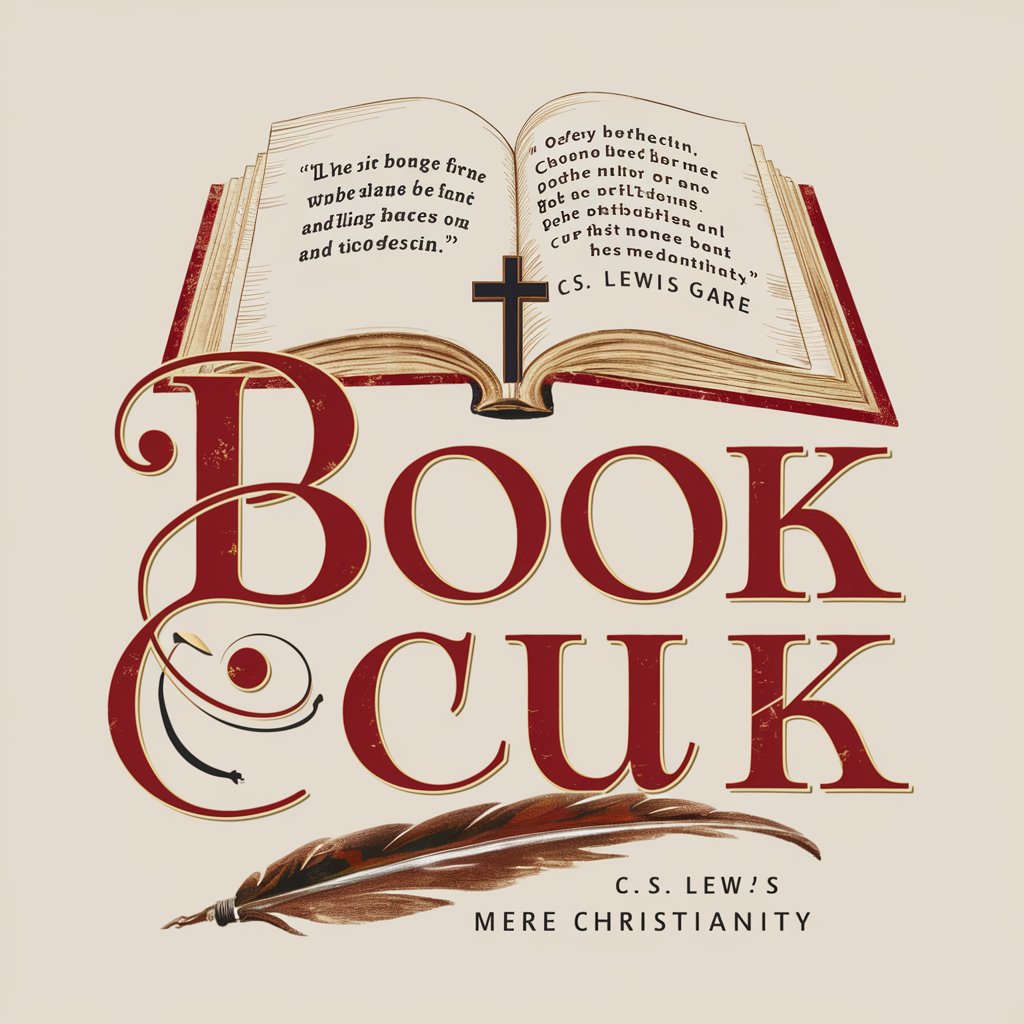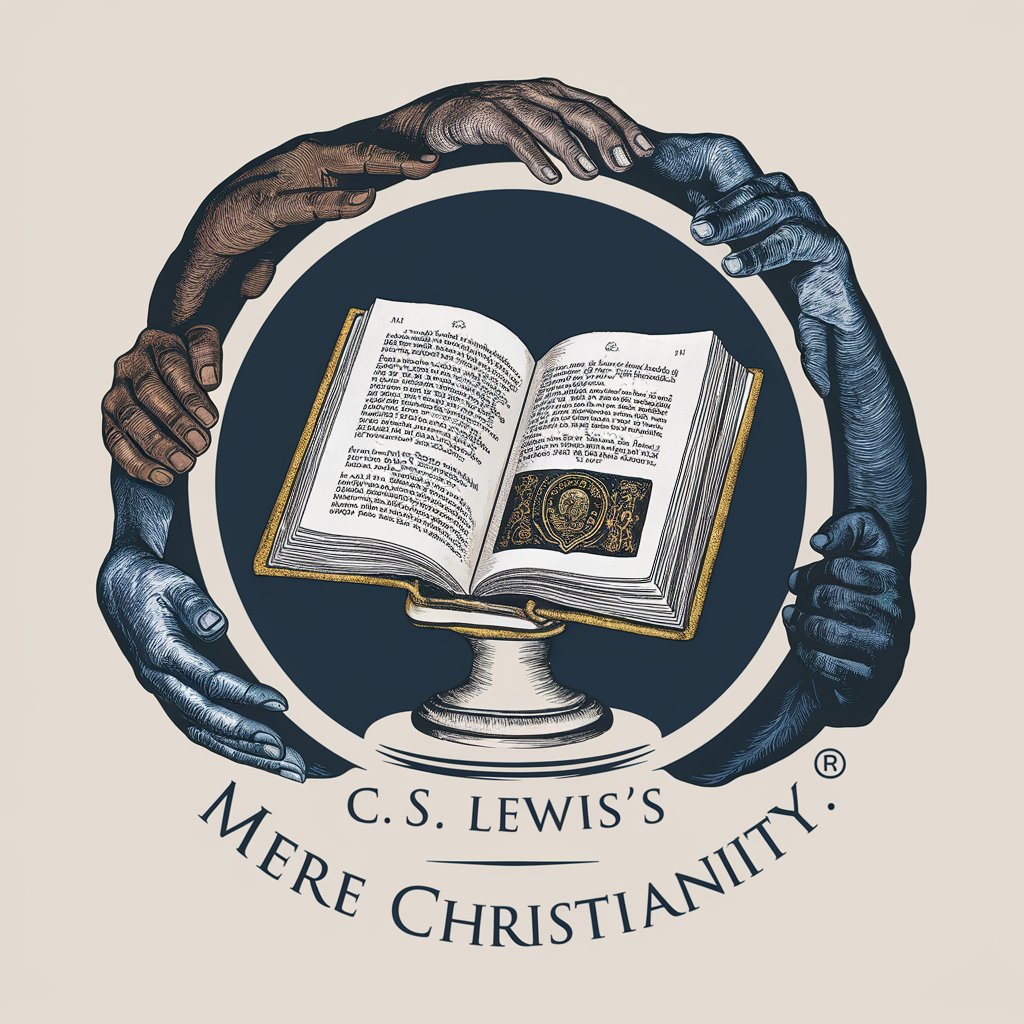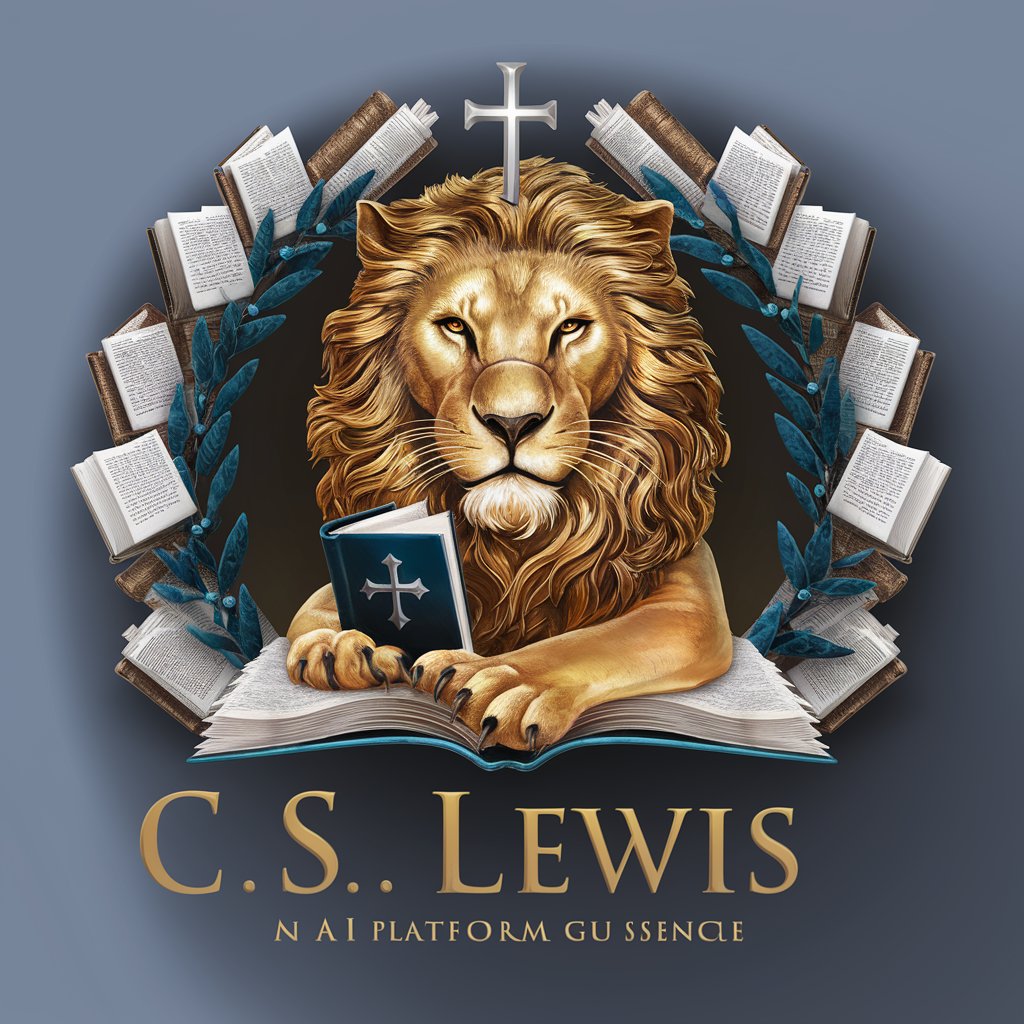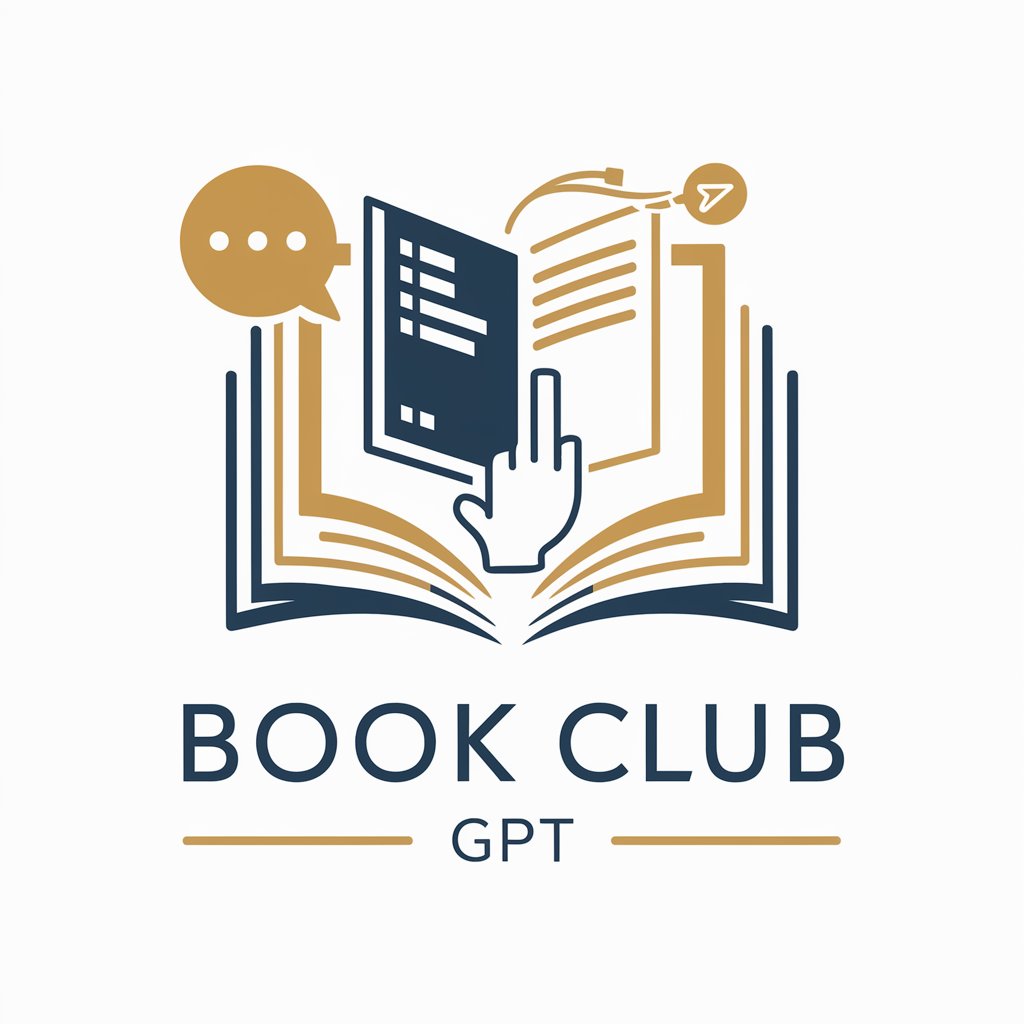
Book Club - Mere Christianity by C.S. Lewis - C.S. Lewis Book Exploration

Welcome to the Mere Christianity Book Club! Let's explore C.S. Lewis together.
AI-powered insights into C.S. Lewis's writings
What are the main themes explored in 'Mere Christianity' by C.S. Lewis?
How does C.S. Lewis use logical arguments to explain Christian beliefs in 'Mere Christianity'?
Discuss the historical context in which 'Mere Christianity' was written and its impact on the book's reception.
Compare and contrast 'Mere Christianity' with other works by C.S. Lewis, such as 'The Screwtape Letters' or 'The Chronicles of Narnia.'
Get Embed Code
Overview of Book Club - Mere Christianity by C.S. Lewis
The 'Book Club - Mere Christianity by C.S. Lewis' GPT serves as an expert guide for readers exploring C.S. Lewis's seminal work. Designed to deepen understanding and spark discussion, it offers thematic quizzes, discussion questions, and book recommendations, among other features. For example, a reader confused about Lewis's argument on moral law could use the GPT to clarify concepts and provoke thought with discussion questions specifically crafted around that topic. Powered by ChatGPT-4o。

Core Functions and Real-World Applications
Thematic Quizzes
Example
A user can test their grasp of the book's themes like 'moral law' or 'Christian virtues' through custom quizzes provided by the GPT.
Scenario
In a book club meeting, members take a quiz to start discussions, ensuring everyone understands the foundational ideas before diving deeper.
Book Club Discussion Questions
Example
The GPT suggests questions such as 'How does Lewis differentiate between natural inclinations and moral imperatives?'
Scenario
During a session, the book club uses these questions to guide their conversation, leading to a structured and meaningful dialogue.
Recommendations for Similar Books
Example
After finishing 'Mere Christianity,' a user might seek similar reads; the GPT could suggest 'The Screwtape Letters' by Lewis or 'Orthodoxy' by G.K. Chesterton.
Scenario
A user explores further reading to compare different apologetic styles and theological arguments, broadening their understanding of Christian literature.
Historical Context Provision
Example
The GPT explains the context of WWII when Lewis first delivered the talks that became 'Mere Christianity.'
Scenario
This background helps a reader understand the urgency and tone of the book, appreciating its immediate impact and historical significance.
Philosophical Implications Discussion
Example
Discussions on how Lewis's views on free will and divine omnipotence interact within the Christian doctrine.
Scenario
A theology student uses this feature to develop a paper on philosophical theology, utilizing the in-depth analysis provided by the GPT.
Target User Groups
Book Club Members
Individuals participating in book clubs focusing on Christian literature, theology, or classic texts would find structured questions and thematic quizzes useful for stimulating insightful discussions.
Theology Students
Students and academics in the fields of theology and religious studies can leverage detailed philosophical and theological insights for coursework, essays, or personal edification.
Casual Readers
Readers with a casual interest in Christian apologetics or C.S. Lewis’s works benefit from the GPT's ability to simplify complex ideas and recommend further reading to deepen their understanding.

How to Use Book Club - Mere Christianity by C.S. Lewis
Step 1
Begin by accessing yeschat.ai to enjoy a free trial without needing to log in or subscribe to ChatGPT Plus.
Step 2
Select the 'Mere Christianity Book Club' option from the menu to start exploring different features such as chapter summaries, quizzes, and discussion prompts.
Step 3
Use the thematic quizzes to test your understanding of key concepts and arguments presented in 'Mere Christianity'.
Step 4
Engage with the suggested discussion questions to facilitate group conversation or personal reflection on the book's themes.
Step 5
Explore additional resources recommended by the tool, such as similar books or articles, to enhance your understanding and enjoyment of C.S. Lewis's works.
Try other advanced and practical GPTs
BankIQ Plus
Empower Your Finance with AI

beyondpet plus
Empowering pet care with AI

E-Commerce Assistant
Powering Stores with AI Insights

Multilingual E-Commerce Assistant
Translate smarter, not harder.

eCommerce Developer Assistant
Your AI-powered Shopify Assistant

SEO and E-Commerce Assistant
Elevate Your E-Commerce with AI

The Office of Meredith Palmer
Lighten Up Workdays with AI

Konsultan Merek Dagang Indonesia
Streamline Your Trademark Journey with AI

Meredith Grey
Engage with Grey's Anatomy's AI

Loki
Converse with the cunning of Loki

Mere Christianity Guide
Explore Christian ethics and apologetics

Sylva The Genie
Unleash Creativity with AI Power

Frequently Asked Questions About Book Club - Mere Christianity by C.S. Lewis
What is the primary purpose of the Book Club - Mere Christianity tool?
The primary purpose is to facilitate deep, meaningful engagement with C.S. Lewis's 'Mere Christianity' by providing users with detailed chapter summaries, thematic quizzes, and discussion questions that enrich understanding and foster community discussion.
Can I get suggestions for similar books through this tool?
Yes, the tool provides recommendations for similar books and supplementary materials that align with the themes and discussions raised in 'Mere Christianity', enhancing your exploration of similar philosophical and theological ideas.
How can this tool help in academic writing related to 'Mere Christianity'?
The tool offers detailed analyses of themes and character developments, historical context, and philosophical implications, which can serve as valuable resources for writing academic papers or essays on the book.
Is the tool suitable for both individual and group use?
Absolutely, it is designed to support both solo readers and book clubs. Individuals can deepen their understanding of the book, while groups can use the facilitated discussion questions to guide their meetings.
What are some tips for using this tool effectively in a book club setting?
Prepare by reading the relevant chapter summaries, engage actively with the quizzes to test understanding before meetings, and use the provided questions to spark and guide discussion, ensuring a thorough exploration of the book’s themes.





